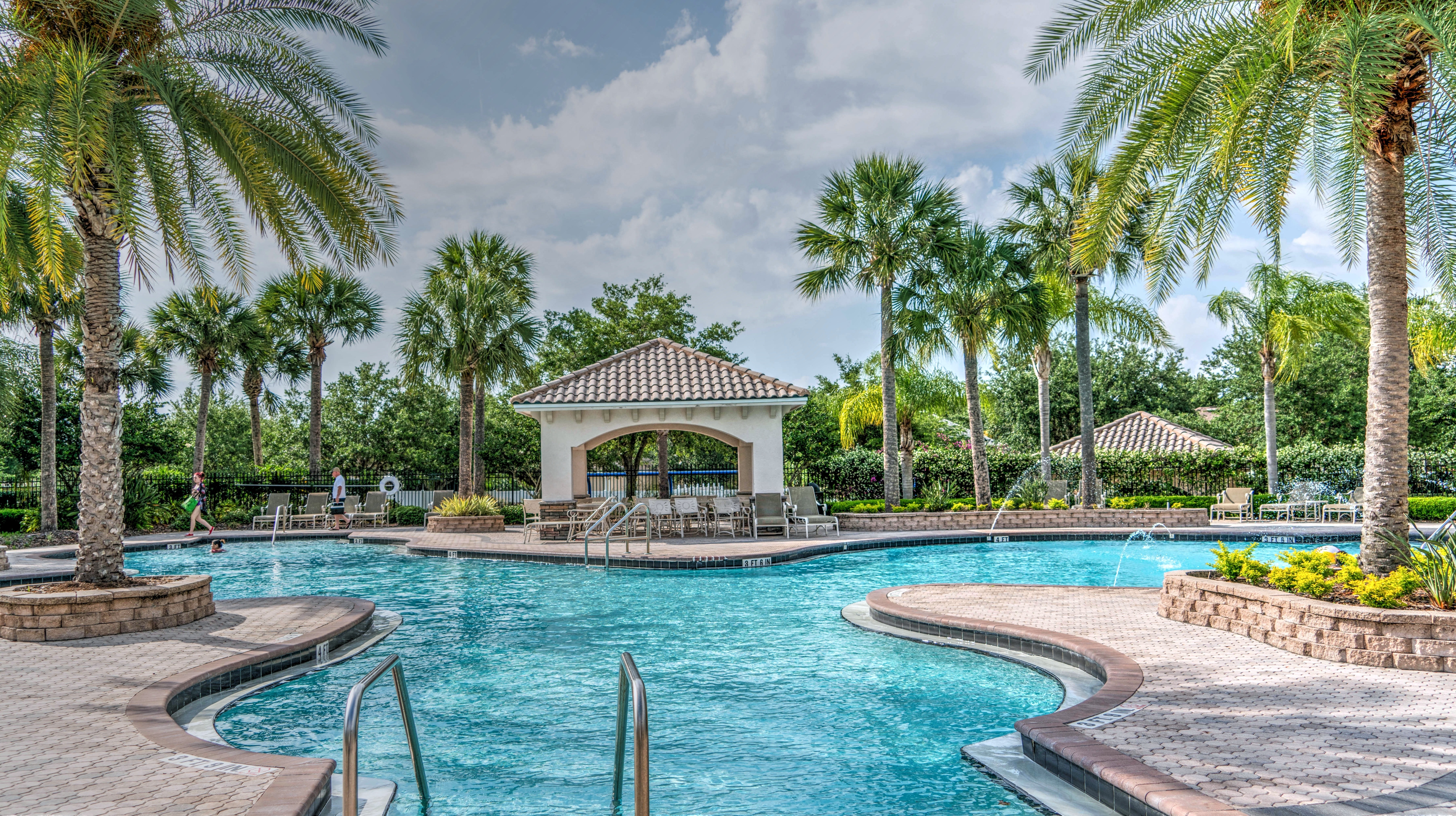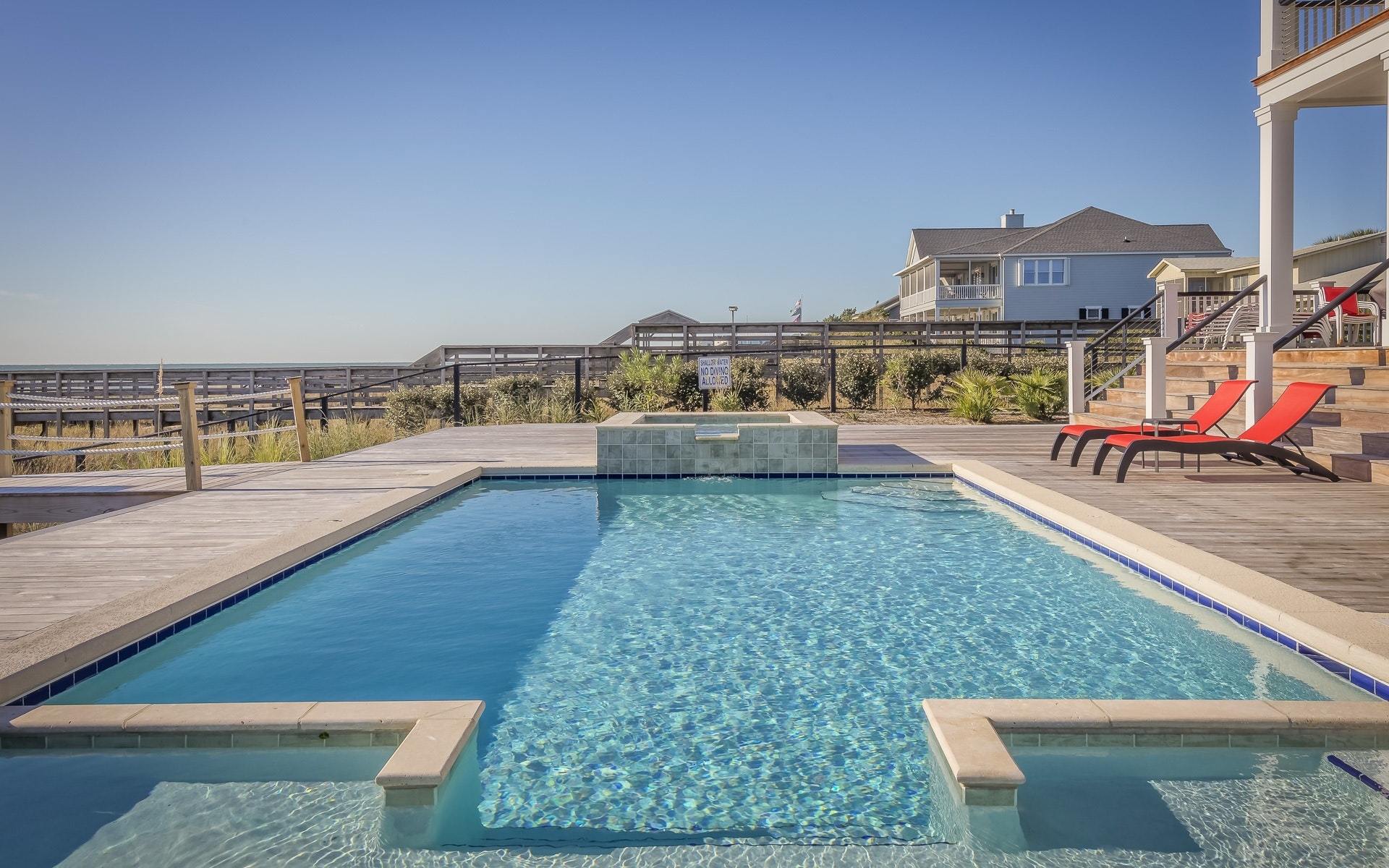Are you looking to adorn your simple pool deck? Do you want a durable option that looks good too? We’ve got you covered. Homeowners with a strong sense of style are also spending a large amount of money to adorn their swimming pools with these stunning travertine tiles.
The area that was originally covered in attractively designed materials has now been replaced with travertine tiles, which are both environmentally friendly and extremely durable. Travertine tiles are also an excellent alternative to the other options for pool decking from an aesthetic standpoint.
Let’s assess its pros and cons to see how effective it is as a poolside tile. But first, let’s find out what travertine tiles are.

What is a travertine pool deck?
A travertine pool deck is an outdoor decking system that makes use of travertine tiles’ inherent beauty and functionality. This beautiful stone material is a sort of limestone that has been created over millions of years beneath hot springs. Water shoots up when geothermal groundwater heats up, creating pits and a distinct character on the surface of each stone.
Travertine pool decks have a rustic appearance, but because of the colour variations available, it has versatile options that can fit into any style. Travertine pavers in Melbourne or any other area in Australia, like any other natural stone tile, is mined and collected in enormous stone blocks before being cut to the proper size and shape.
Travertine has been commonly utilised in masonry from prehistoric times. The Colosseum, Hierapolis, Basilique du Sacre-Coeur, Willis Tower and Tonto Natural Bridge are among the most prominent architectural and engineering marvels made of travertine tiles.
Pros of travertine tiles:
- Beautiful antique look
The beauty of travertine tiles is undeniable. A travertine pool deck will increase the value of your home’s curb appeal. Because the graining and primary tile colours have a warm natural colour tone, you can easily construct a comfortable, cosy-looking pool deck with travertine pavers in Melbourne or any suburb you reside in. - Keeps your feet cool
In the summer heat, a travertine pool deck keeps your feet cool. You get the elegance of stone tiles without compromising comfort. As travertine pool decks stay cool under your feet, you can roam around your pool even when it’s hot outside. - Does not crack in freezing temperatures
In frigid conditions, it will not crack. Travertine decking not only performs well in hot regions but also maintains its clean appearance when temperatures decrease. Because of the unusual vertical capillary action, which allows moisture to escape through the flooring material, the stone tiles survive the freeze-thaw cycle. - It can last a lifetime
Amongst all pavers in Melbourne, average-grade travertine tiles can survive over 100 years if properly cared for, installed and even not subjected to significant wear and tear. - Work-ability is easy
Travertine tiles are simple to cut and mould into any shape. This benefit makes it simple to deal with, especially on pool decks with uneven surfaces and odd layouts. - Low maintenance
Travertine tiles do not require any more effort to maintain than ceramic or marble tiles. Regular sweeping and a light power wash setting will remove stubborn dirt.
Cons of travertine tiles:
- Scratches and dents
The soft surface of travertine pool decking makes them more susceptible to scratches and dents. Heavy impacts can dent and scratch travertine tiles, despite their generally high durability. Because of their inherent surface pits and graining, travertine tiles’ scratches and dents are barely evident, which is a beneficial feature. - Can be slippery
Remember that travertine tiles, especially those with a brushed or tumbled texture, are skid-resistant in general.
Travertine tiles, like any other stone tiling, can be slippery, especially when wet. They are not all created equal. Furthermore, shoe traction should be considered at all times. Before purchasing your preferred travertine tile product, consult pool coping experts in Melbourne or an area nearby to ensure a skid-free travertine pool deck. - The surface is porous
The porous nature of travertine tiles can be both an advantage and a disadvantage. Water and moisture will be able to travel through the porous surface, preventing puddles and mould build-up. It can, however, easily absorb stains. Wipe up spilt liquids right away to avoid lasting stains. Finishes can be applied to prevent discoloration and a non-slip coating can be applied on top of that. - Acid sensitivity
Strong cleaning chemicals and other acid-containing solutions can damage travertine tiles, so use caution while using them. As a result, installing natural stone in kitchens and bathrooms is difficult.
We hope the above-listed pros and cons of travertine tiles will help you make an informed decision regarding them. However, with proper care and caution, they can last a lifetime and keep your pool deck beautiful.

